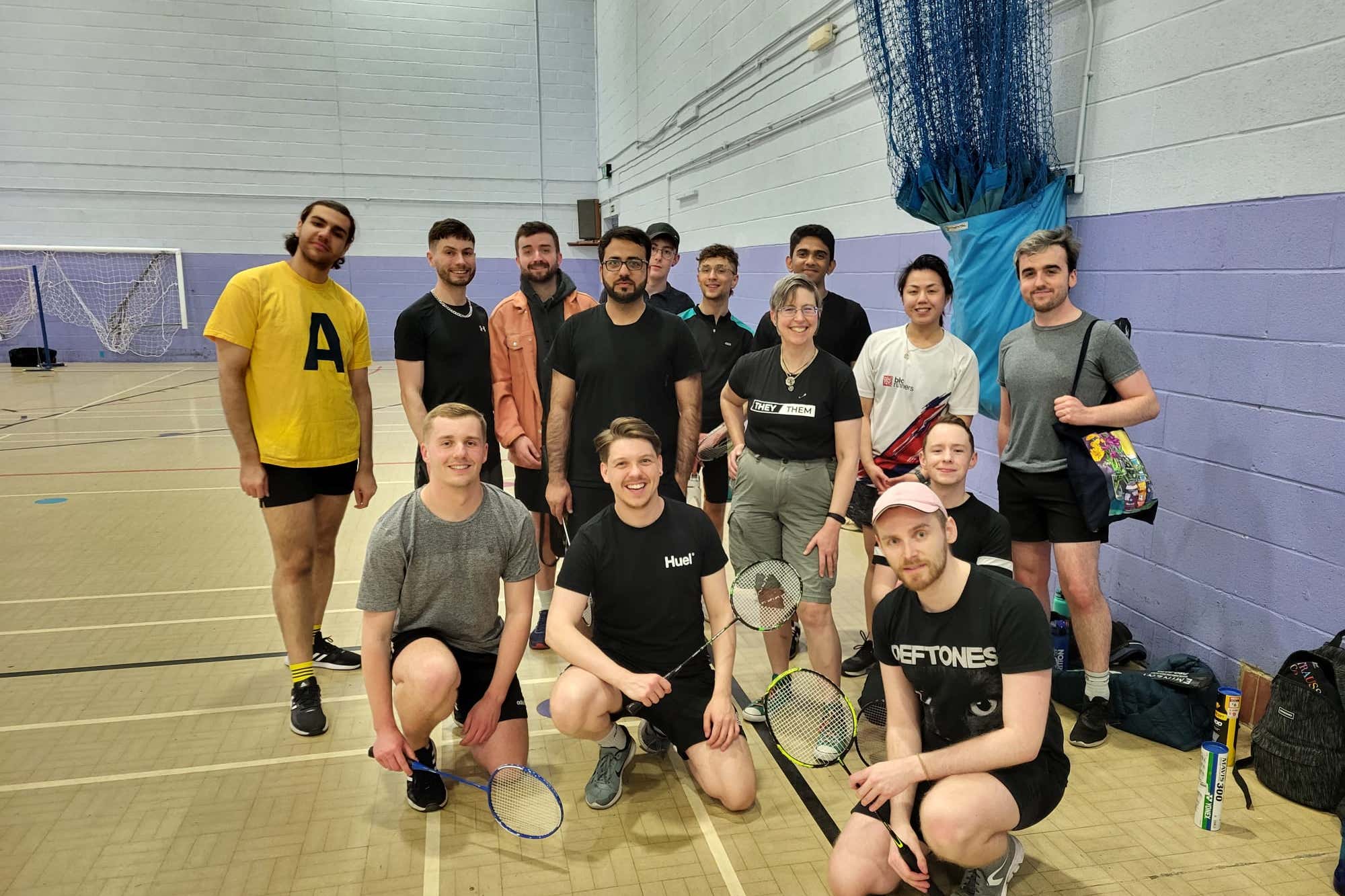LGBT+ badminton club ‘helped me feel comfortable telling people I’m gay’
One player said: ‘I feel more comfortable telling people I’m gay, I’m queer, and that would have not been the case if not for LYC.’

LGBT+ badminton clubs across the UK are helping members of the community feel “confident and comfortable” with who they are.
Long Yang Club Badminton London (LYC) has been in existence since the mid-1980s and serves to unite queer Asians and Westerners with an interest in the sport.
For James Yeung, who has been playing at the club for around a year and a half, if it was not for LYC he would not have been able to “grow in a way where I’m confident and comfortable with who I am”.
“I came out very late in life – when I was 29 – and it was tough,! the 34-year-old, who is based in Camden Town, London, told the PA news agency.
“I came out to my parents, my mum’s still accepting that I’m gay and fast forward to now, I’m making real connections here.
“I feel more comfortable telling people I’m gay, I’m queer, and that would have not been the case if not for LYC and other clubs similar to this, where you are speaking to individuals who have gone through similar experiences and that has helped me grow in a way where I’m confident and comfortable with who I am.”
Malcolm Salamon, 65, has been attending sessions at LYC for about two-and-a-half years, but has played badminton for seven years.
“I was made to feel welcome and I didn’t feel terribly out of place, although I think I probably was the oldest person here by far,” the Londoner, who identifies as non-binary, told PA.
“Now I’m part of the furniture – it’s just my home.”
He said having an LGBT space means “you don’t even have to think about what you have to say or what someone might say to you”.
“It’s just a feeling of freedom,” he added.
Members play at Queensbridge Leisure Centre in Dalston on Wednesdays and at Kensington Leisure Centre on Sundays.
The club also has its own league team, which takes part in three competitions annually, as well as hosting social activities throughout the year.
Mr Salamon added: “It’s also nice that our club is so inclusive – we have people here who would describe themselves as heterosexual and there is this freedom to be relaxed around whoever comes here.”
He said that although he used to see Pride in a more political way when he was younger, he now views it as a festival.
“I think it’s a rare commodity sometimes for people to just be themselves and Pride represents that people can be just that,” he said.
In Leeds, Rob Wilson, 47, helped to set up The Bad Mittens, an LGBT+ badminton club, around seven years ago as he felt that “society kind of pushes LGBT+ people towards the bar scene going ‘that’s your space, that’s where you find you sense of belonging’. It’s just not true.
“There’s so much else out there that people can get involved with and have that safe space for them to meet other people in the community that’s not alcohol fuelled.”
The group plays across three different sites – Armley, Morley and Kirkstall – and has grown hugely since starting off with a mere 20 to 30 members.
“We have about 50 people every week across four sessions and from those, we’ve probably got around 80 people who are regulars”, he said.
“It’s really lovely when you see them playing together, or on Facebook tagging people, making friends with others in the group, going out for a meal and it’s humbling to think you created that space.
“Having an LGBT+ led environment creates that safety net for people to feel that they’re not being judged and they’re not going into an environment where they keep needing to come out.”
He added that “now more than ever” there is a need for people to be allies to those in the community.
“There’s plenty of opportunities to speak up and speak out and support LGBT+ people,” he said.
“So grasp those opportunities, encourage your network to support that – don’t shy away from it.”
Bookmark popover
Removed from bookmarks